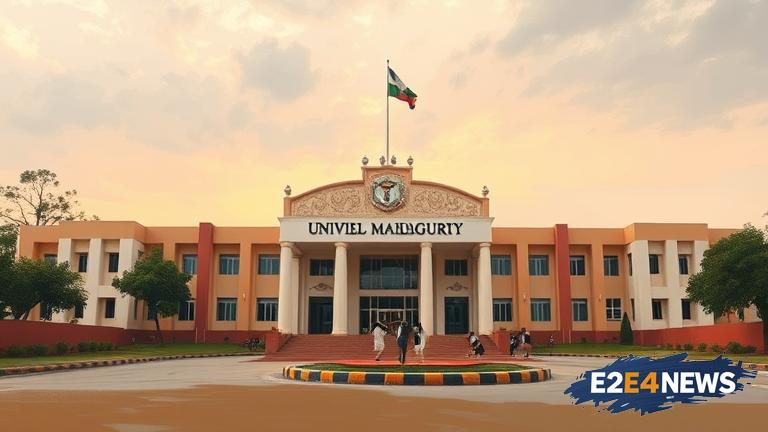The University of Maiduguri, a prestigious institution in Nigeria, has been at the center of a heated debate in recent days. The controversy surrounds the proposed renaming of the university after President Muhammadu Buhari, a move that has sparked intense discussion among students, alumni, and the general public. While some have welcomed the idea, others have vehemently opposed it, citing various reasons. The proposal to rename the university was reportedly made by the Borno State House of Assembly, which argued that the move would be a fitting tribute to the president’s contributions to the country. However, not everyone is convinced that the renaming is necessary or appropriate. Some students and alumni have expressed concerns that the move would undermine the university’s autonomy and independence. Others have argued that the renaming would be a form of political patronage, which could compromise the institution’s academic integrity. The debate has also raised questions about the role of politics in education and the potential consequences of allowing political considerations to influence academic decisions. Despite the controversy, the university’s management has remained tight-lipped on the issue, fueling speculation about the fate of the proposal. The Nigerian government has also not made any official statement on the matter, leaving many to wonder about the next steps. As the debate rages on, it remains to be seen whether the university will ultimately be renamed after President Buhari. The outcome of the controversy will likely have significant implications for the institution and its stakeholders. The University of Maiduguri has a long history of academic excellence and has produced many notable alumni who have made significant contributions to various fields. The institution’s reputation and legacy are at stake, and the decision to rename it will require careful consideration of the potential consequences. The controversy has also highlighted the need for greater transparency and accountability in academic decision-making, as well as the importance of protecting the autonomy and independence of educational institutions. Ultimately, the fate of the University of Maiduguri will depend on the ability of its stakeholders to navigate the complex and often contentious world of politics and education. The university’s students, alumni, and faculty will be watching closely as the situation unfolds, hoping that the institution’s best interests will be protected. The controversy has sparked a wider debate about the role of education in Nigerian society and the need for greater investment in the country’s educational infrastructure. As the country continues to grapple with the challenges of development and growth, the importance of education in driving progress and innovation cannot be overstated. The University of Maiduguri has a critical role to play in this effort, and its stakeholders must work together to ensure that the institution remains a beacon of academic excellence and a source of pride for the nation.
